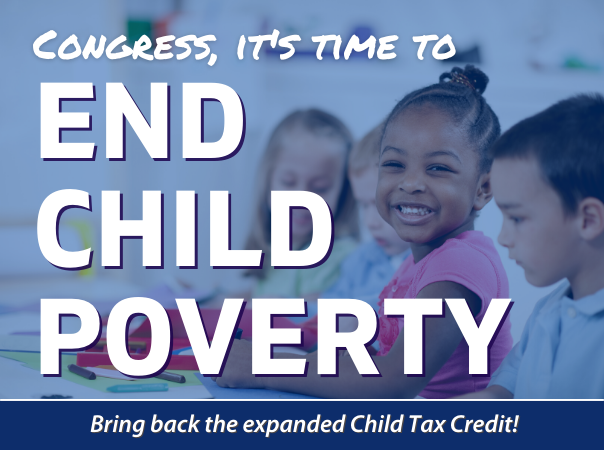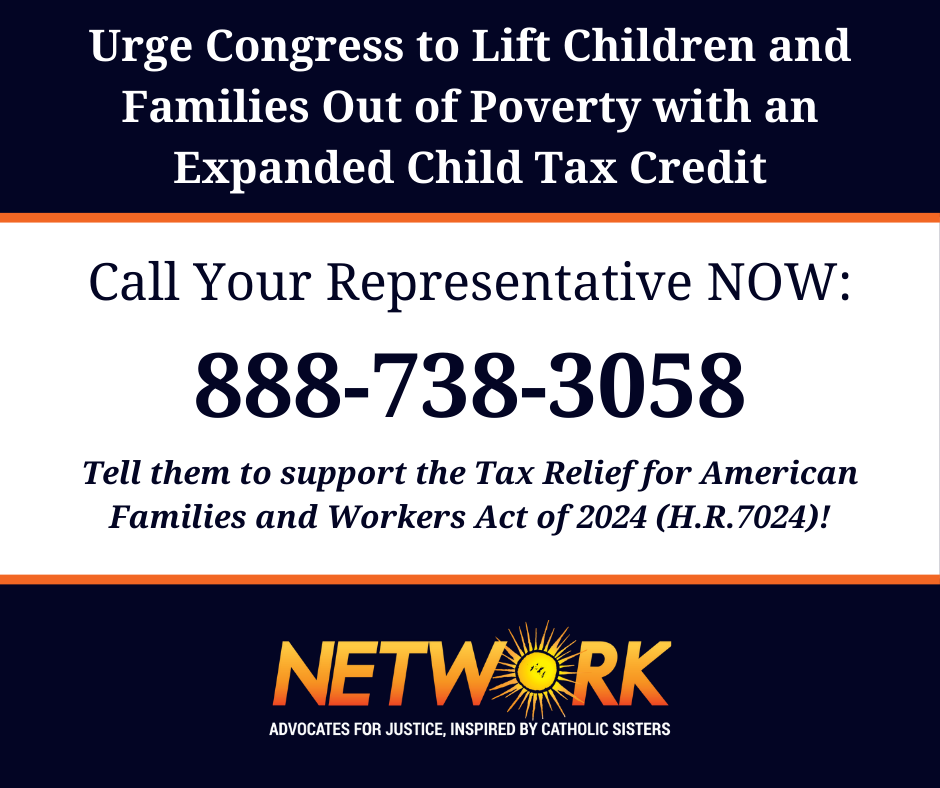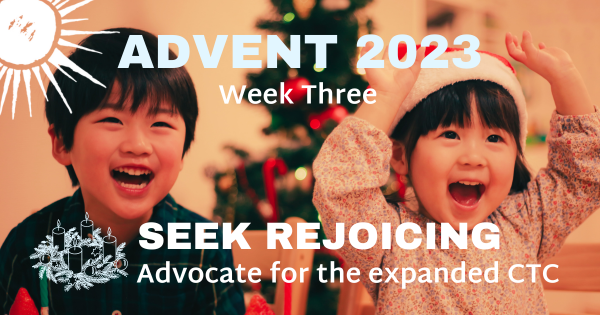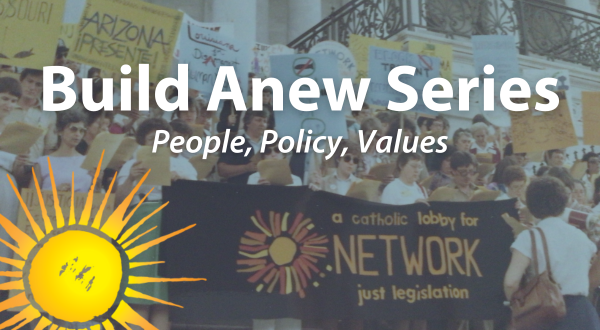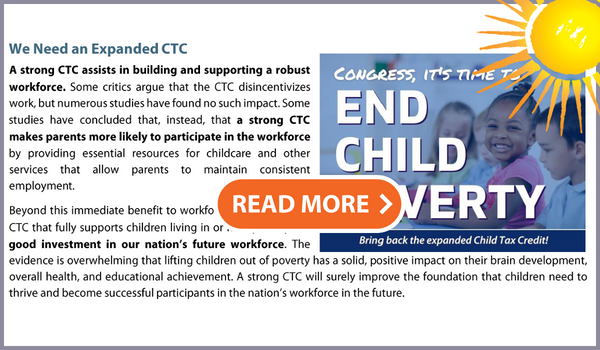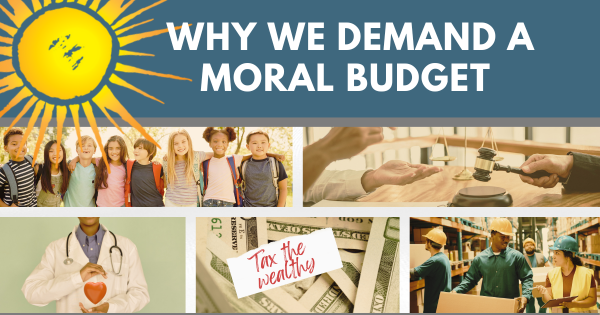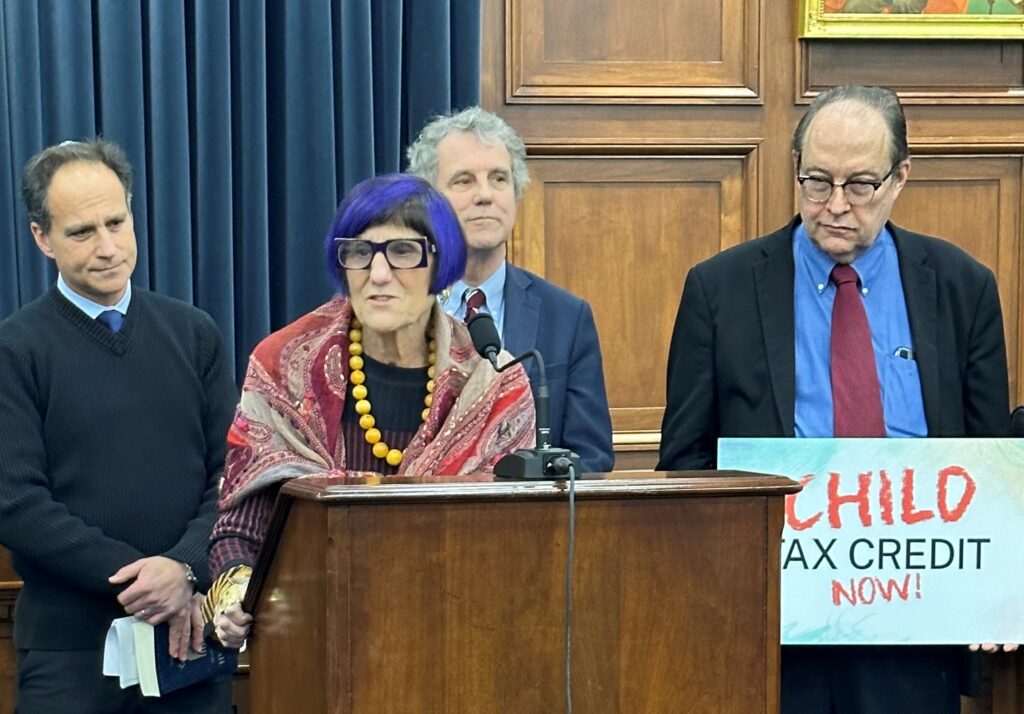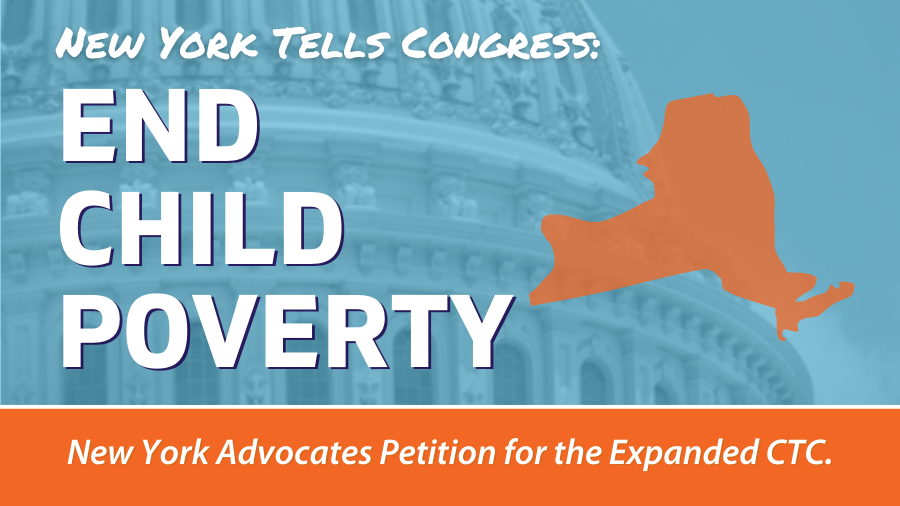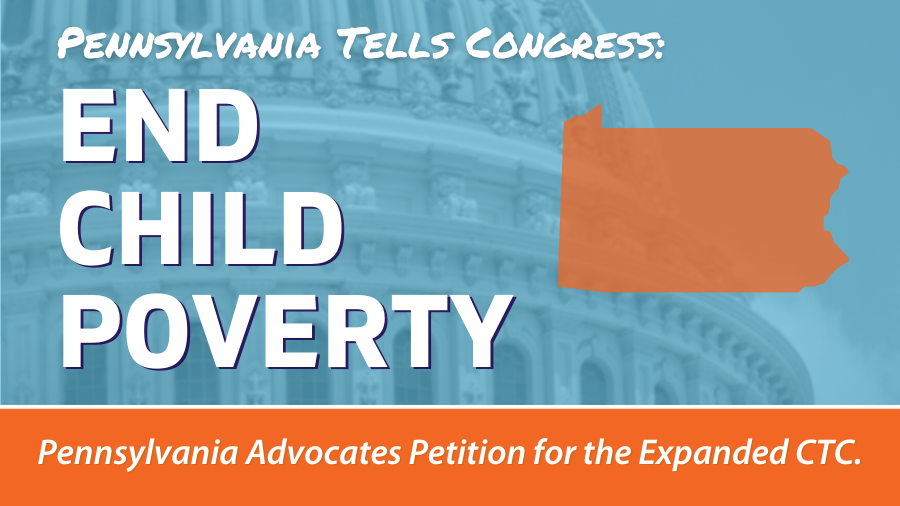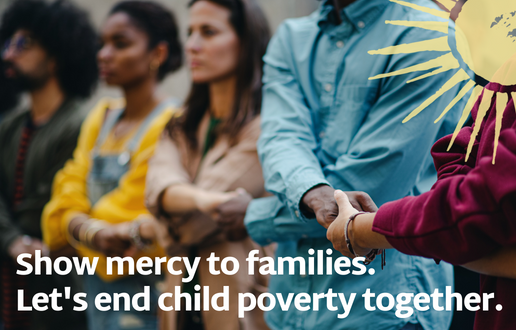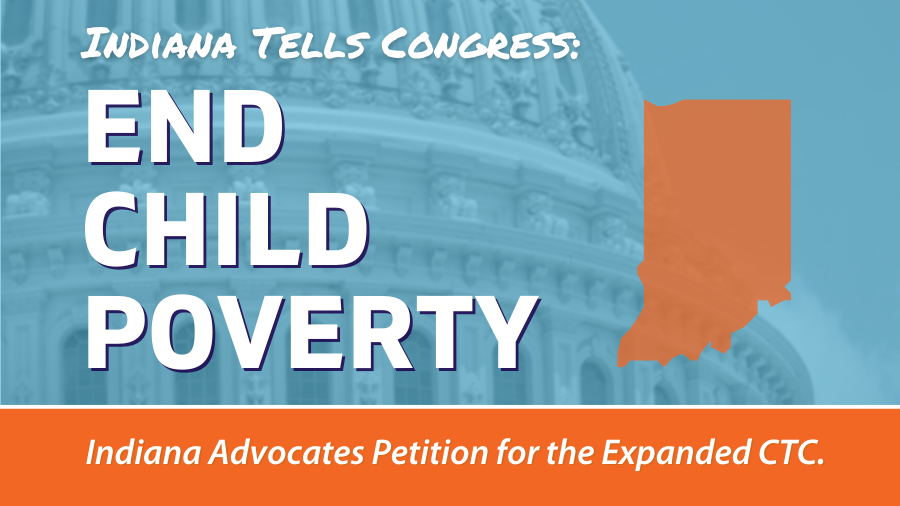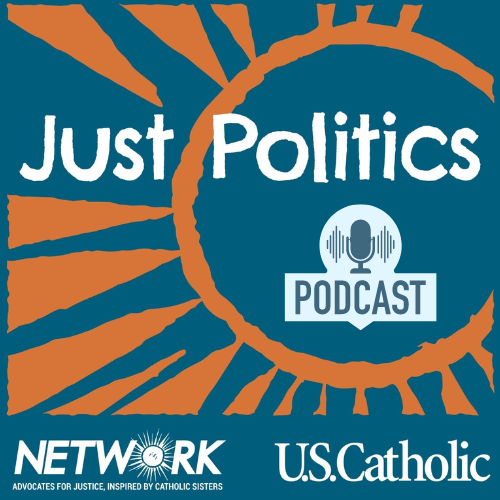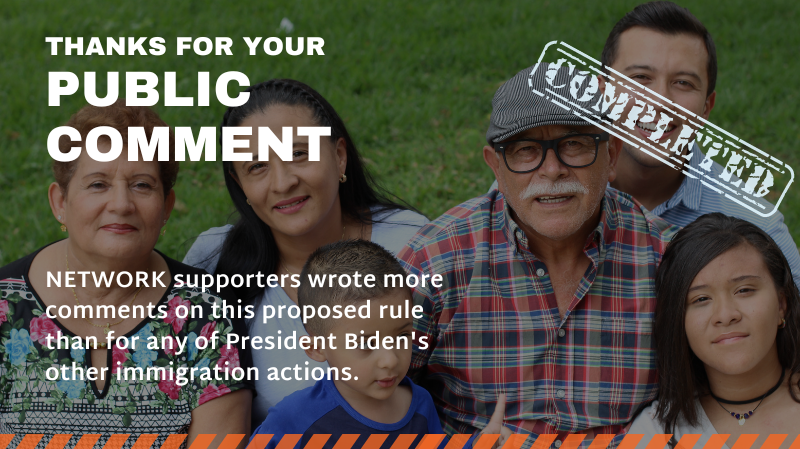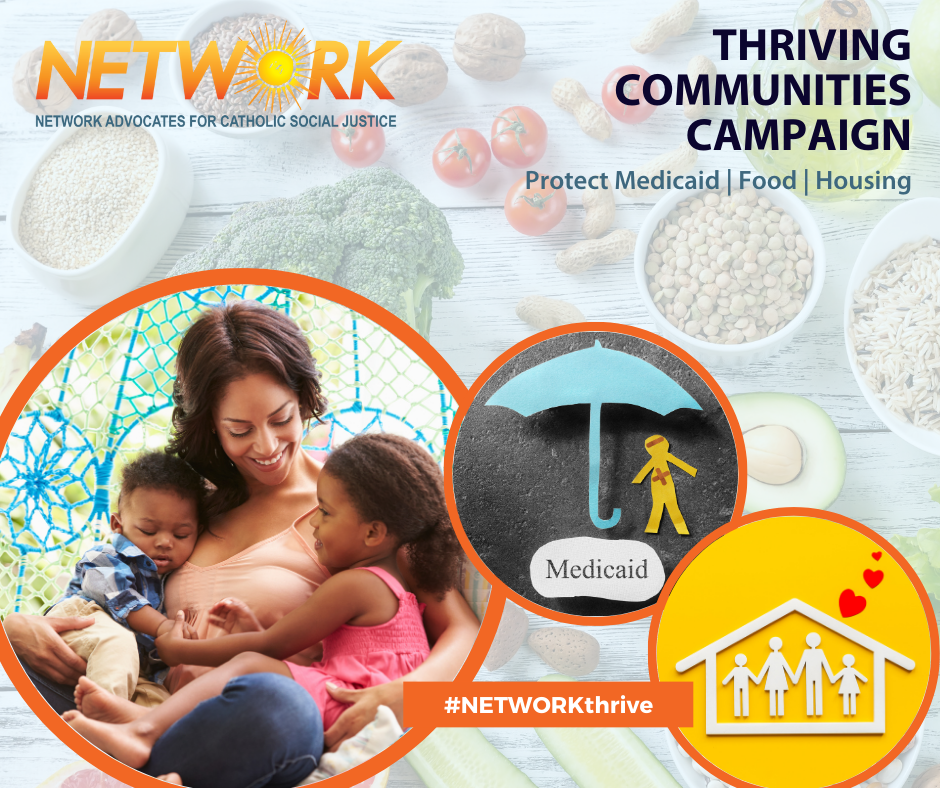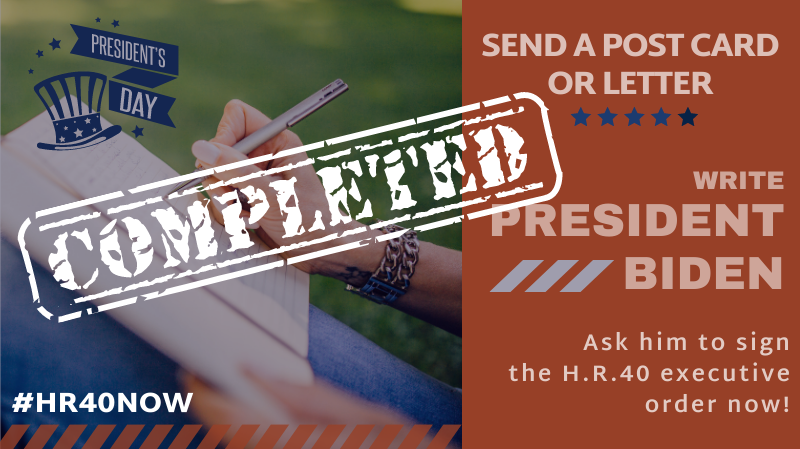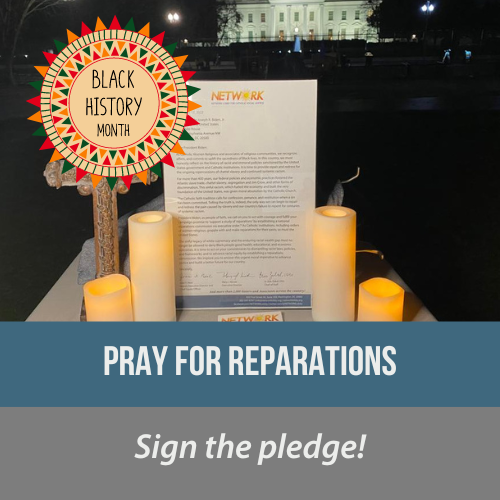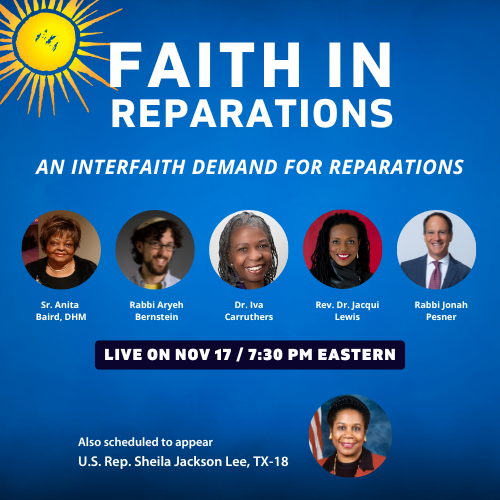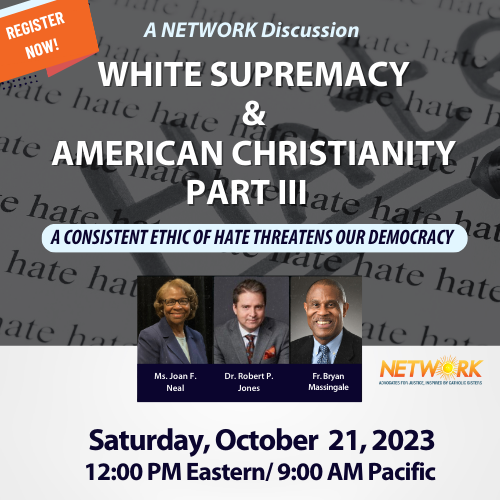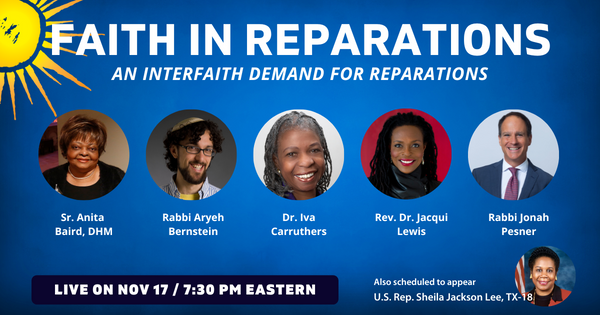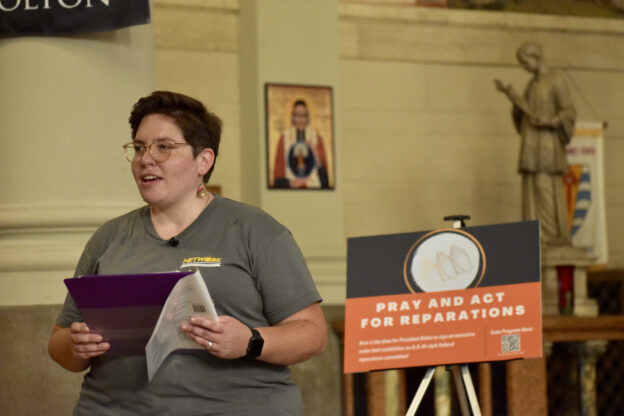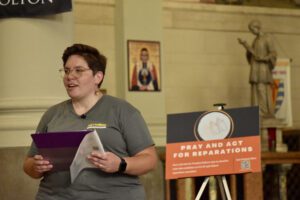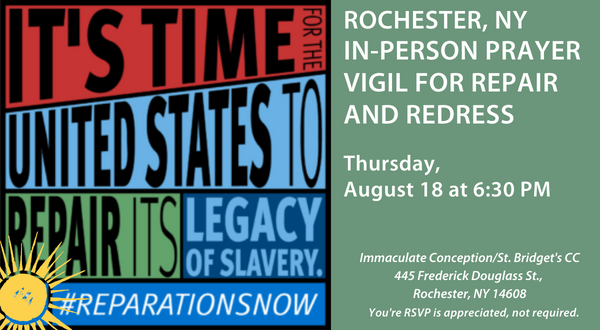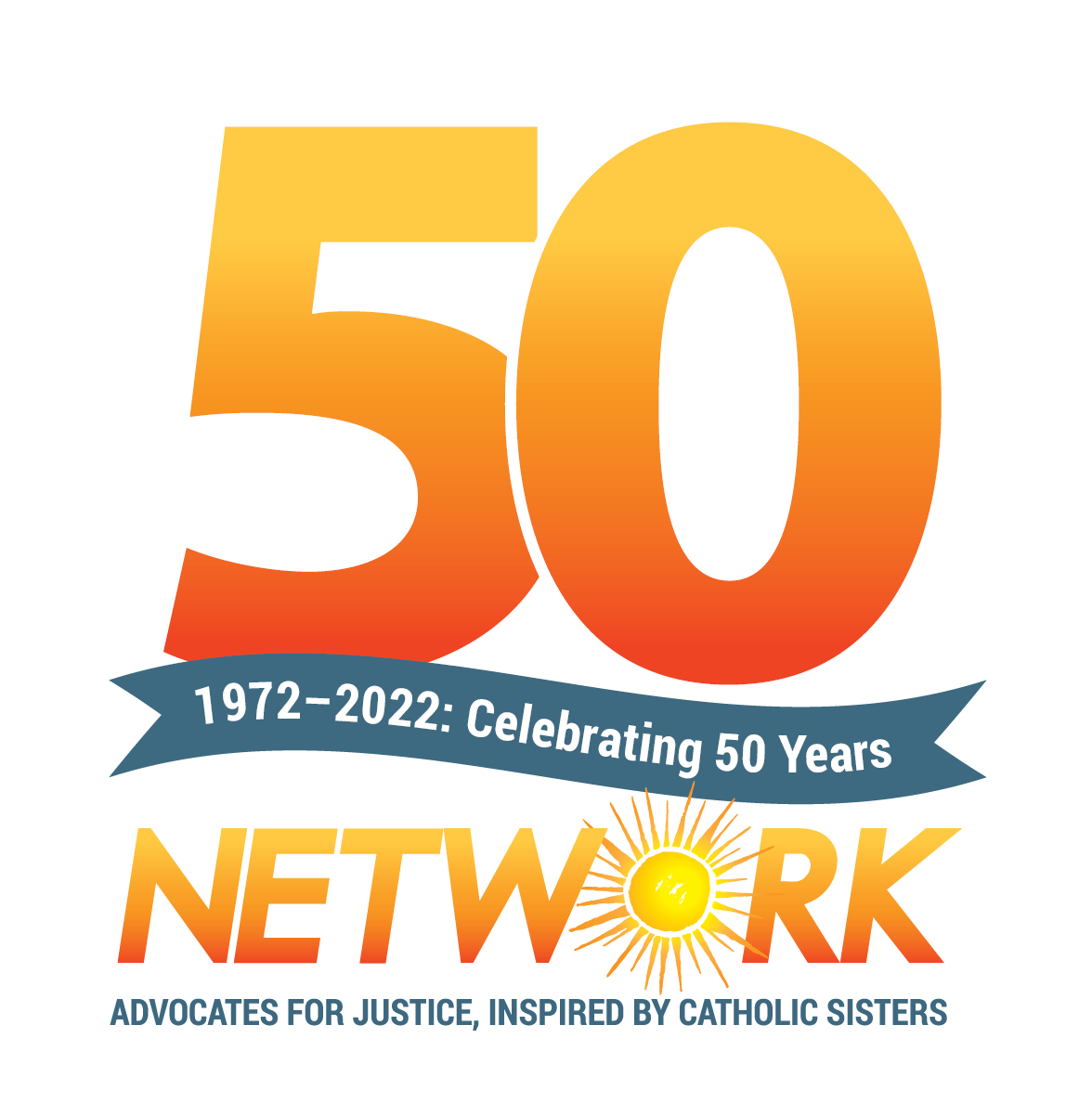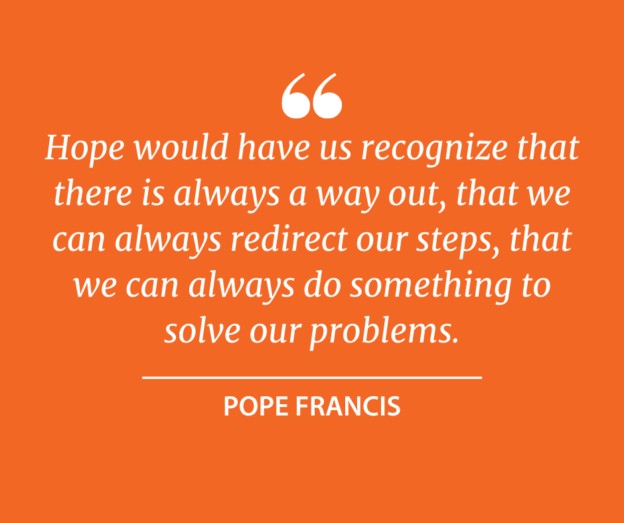Watch the #CTCNow press conference and share it with friends. Scroll for call-in and Tweet details to take action to end child poverty with the Child Tax Credit.
Child Poverty is a Policy Choice
2021’s expanded Child Tax Credit (CTC) lifted a historic number of kids out of poverty. It is poor policy, and morally repugnant, to extend tax breaks for corporations without also enacting robust expansion of the CTC. Congress must pass a fully refundable, monthly Child Tax Credit before the New Year.
Call the Senate: 1-888-738-3058!
Submit the Tweet below.
Call Your Senators NOW: 888-738-3058! *Dial twice to reach both of your Senators*
Tell them no tax breaks for corporations without including the Child Tax Credit.
When you call, here’s what you might say:
“Hello, my name is [YOUR NAME] from [YOUR TOWN]. As your constituent and a member of NETWORK, I ask you to support the expansion of the Child Tax Credit in any end of the year tax package. This is urgent. Millions of children who were lifted out of poverty by the expanded credit are now living in poverty again. This is a moral outrage. Will the Senator support passing the expanded Child Tax Credit before the end of the year?
Resources to support you when you take action to end child poverty.
Blogs
Talking Points
- Last December, Congress allowed the expanded credit to expire, pushing nearly 4 million children back into poverty.
- Census Bureau surveys found that 91 percent of low-income families—those with incomes below $35,000—used their monthly CTC payments to cover the cost of basic necessities such as food, housing, utilities, clothing, and education
- Critics charge that the extended CTC is too generous. Some claim it reduces the incentive to work. They are wrong! Data conclusively shows that the CTC did not precipitate workforce reductions. Ironically, many parents who thrived in the workforce when the CTC was in place have left jobs since it expired.
- The expanded CTC was an anti-poverty program AND a middle-class stabilization tool. Payments were a crucial financial lifeline to millions of families across the country; a wide range of families across income levels, racial and ethnic groups, and education levels received and benefited from these payments in 2021. Middle-income families, white families, and those without a college degree made up larger shares of recipients than low-income families, families of color, and those with a college degree.
Articles
Expanded Child Tax Credits Have Been a Lifeline for Many | American Progress
The child tax credit encourages parents to work, study finds | CNBC
What can bring together pro-life Republicans and progressive Democrats? Expanding the child tax credit. | America Magazine
Association of the Expiration of Child Tax Credit Advance Payments With Food Insufficiency in US Households | JAMA
Advocate’s CTC Testimonials
“Many families with young children that I know, including my own, live paycheck-to-paycheck, and the significant inflation that we are facing has caused many of us to deplete our savings and increasingly rely on credit cards to get us through the month. With interest rates as high as they currently are, this is digging us into a deeper financial hole. An expansion of the Child Tax Credit could help us avoid using credit at a time when financial experts advise us to do so.” Natalie M., Shaker Heights, OH
“[The CTC] will allow my children the opportunity to participate in extracurricular activities and expose them to new experiences and friends, promoting the growth of their whole self.” Ivelisse C., Cleveland OH
“I have nieces in Ohio who are struggling to make ends meet to feed and clothe their children and also to afford daycare so they can get a job. The Child Tax Credit helped them before and it can help them again!” Sr. Joyce K., CPPS, Dayton, OH
“Several of my church families along with others in the community are struggling to make ends meet and to provide for their children. Some are looking at the loss of homes and eviction. The expanded Child Tax Credit will help to minimize theses effects of inflation and low paying work situations.” Rev. Karen B., Jeffersonville, IN







